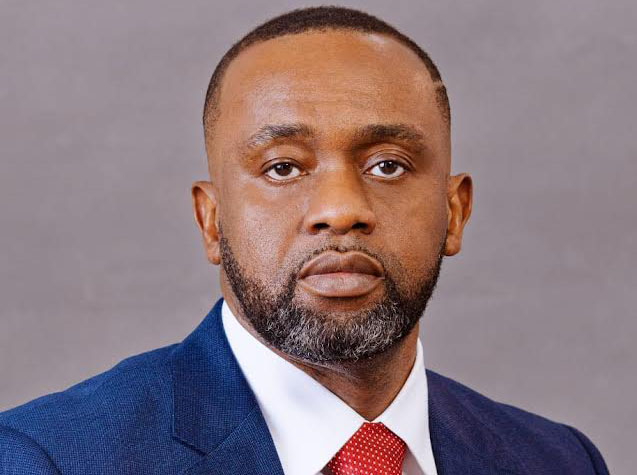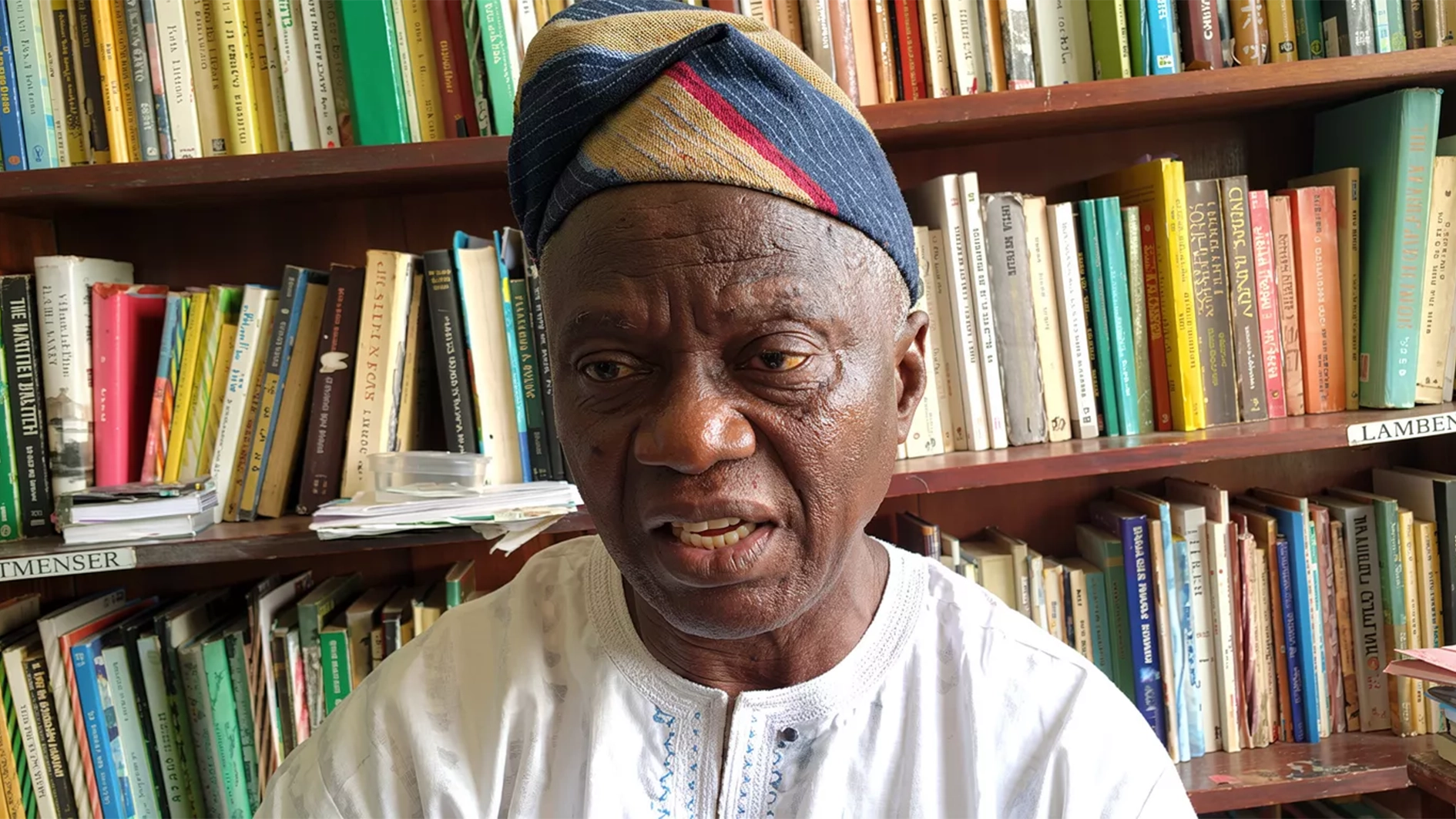
In late 2023, the Nigerian National Petroleum Company Limited (NNPCL) creatively helped Nigeria secure a $3.3 billion crude oil pre-payment loan from the African Export-Import (AFREXIM) Bank. The arrangement christened “Project Gazelle”, is the first of its kind to be facilitated by any government institution in Nigeria. While many Nigerians have hailed the move by NNPCL, others have expressed concern about the implication of the loan for Nigeria’s oil production. In this interview with a select group of journalists, NNPCL’s Chief Corporate Communications Officer, Femi Soneye, explains issues around the loan and its benefit to the nation. GBENGA AKINFENWA was there.
The Project Gazelle has thrown up a lot of issues particularly because of its unique nature, which involves forward sale of oil. Perhaps this is where we should begin. What is crude oil backed forward-sale financing agreement? How does it work?
A forward sale financing is an agreement between the owner of a product and a potential off-taker (buyer) that allows the off-taker to pre-pay, that is, pay ahead, for the future product of the seller. Under the arrangement, the seller agrees to sell its product to a Special Purpose Vehicle (SPV) in the future in exchange for immediate funding. This done, the SPV then goes to a bank or financial institution and obtains financing based on the agreed forward sale value of the product. This financing is often collateralized by the future product itself. The advantage to the seller is that it is able to use the proceeds from the forward sale to finance its operations ranging from operational expenses to production costs, and investments in new projects.
Okay. This seems clear enough but a key sticky issue is repayment…
I was coming to that. It’s a simple and straightforward matter. The SPV is able to use the proceeds of the sale of the product(s) to meet its financing obligations whilst flowing back to the original seller any upsides from the final sales.
Fine! It is believed that Nigerians now have a clearer understanding of the dynamics of forward sale-financing. Let’s get down to basics. What is Project Gazelle all about; what are the details of the deal with AFREXIM?
Project Gazelle is the code name given to the structured crude oil backed forward-sale finance facility sponsored by Nigerian National Petroleum Corporation Limited (“NNPC Ltd”), which is the seller.
By this arrangement, NNPC Ltd has dedicated a specific number of barrels of crude oil to a Special Purpose Vehicle (“SPV”) which has in turn approached international financial institutions to provide the funding required to pay for the forward-sale. The proceeds of the forward-sale are thus made available to NNPC Ltd for its use.
Why is NNPCL involved in this arrangement? What is the compelling need for it to get involved in this kind of deal?
NNPC Ltd entered into this arrangement to ultimately provide dollar financing to the Federal Government. It is a short to mid-term solution to the foreign exchange shortage challenge currently being faced by the country. Nigeria needs to urgently improve its foreign exchange position. As of June 2023, the Central Bank had over US$6 billion of unmet obligations – forward contracts with third party institutions which had passed their expiry dates.
These unmet obligations have pressured the nation’s external reserves and resulted in a significant devaluation of the Naira. The pre-financing arrangement allows the Federal Government to receive foreign exchange, in advance, to enable it resolve its unmet FX obligations. These inflows of foreign exchange will ensure exchange rate stability and is an immediate quick-win available to the country.
Can this type of financing really help improve flow of foreign exchange into a country?
Forward sale contracts help resource producing companies such as the NNPC Ltd to deliver significant upfront funding for new projects prior to eventual production and export. Usually, the funding available is used as investments in existing and prospective resources, this could result in more oil and gas production in the country as new projects come on stream, and higher oil and gas exports, bringing in more dollars and foreign currencies.
International Banks have a track record for providing forward-sale financings. This basically brings new Foreign Direct Investments (“FDIs”) into the country.
With Nigeria having over 35billion barrels of proven reserves that need to be exploited and produced, a fraction of these prospective reserves can be used to raise the required funding.
With a forward sale financing, the country can securitize these proven oil reserves today. This improves foreign currency inflows immediately rather than having to wait for years.
Also, by supporting more exports and bringing in overseas financing, forward-sale financing can significantly boost the availability of foreign currency for an oil/gas dependent country. This improves the country’s ability to pay for imports and manage its overall economy.
When exports finally start, the forward-sale investments are repaid using the money earned from those same exports. This improves the country’s balance of payments.
The financing gives the government more stable and predictable oil earnings. This helps in planning budgets and managing foreign exchange reserves.
But there are other ways of obtaining foreign currency…
Yes. Nigeria can obtain foreign currency by increasing its oil production which will lead to a growth in crude exports. Unfortunately, a ramp-up in production will not occur in the short term due to the current lack of foreign direct investments into the oil and gas sector. Fortunately, as I said earlier, Nigeria is blessed with over 35 billion barrels in oil reserves and is at liberty to sell some of these reserves on a forward basis, wherein it sells only a small portion of its oil for cash forwards.
Nigeria is able to source foreign exchange from other sources including Eurobonds and Debt Issuances. These sources are, however, currently constrained given the increased borrowing of recent years as a result of the poor fiscal state of the economy.
So, why is the crude price used to determine the volume of crude pledged for the forward-sale financing lower than the current market price?
There are a few key reasons why the crude price used for determining the volume pledged in a forward-sale financing deal is usually lower than the current market price. For one, oil prices are volatile which means prices can go up and down within a period. Using a benchmark lower price provides a safety margin during extended periods of price declines before the full repayment of the facility.
To ensure a limited risk of default, Lenders want a low price for safety. Borrowers want a high price to minimize pledged volumes. The negotiated price sits in the middle. Some revenues go to cover costs before repaying the loan. A lower price estimate also makes provision for these incidental costs.
In summary, lenders want safer, lower price assumptions. The negotiated price balances the interests of lenders and borrowers and reflects a prudent approach to ensuring the security of such transactions.
You make it sound as if it so easy but what happens when sales proceeds are much higher than the repayment amount?
If oil prices spike significantly, the future value of oil sale could become much higher than the forward-sale financing. In this case, the company (seller) simply repays the original loan amount plus interest as agreed, even if sales proceeds are higher. Any excess revenues are paid to the issuer (seller).
For example, if a $100 million forward sale financing for 1 million barrels of exports at $100/barrel, but oil prices jump to $150/barrel, those 1 million barrels would now fetch $150 million. The financiers will receive the $100 million+ interest and the excess $50 million will flow back to the seller.
Let’s look at two key areas of the Project Gazelle that have attracted a lot of comment-the interest rate and repayment…
What is the interest rate on the Project Gazelle transaction? The interest rate is benchmarked on a 3-month term Secured Overnight Financing Rate (“SOFR”) plus a margin.
The Secured Overnight Financing Rate (SOFR) is a broad measure of the cost of borrowing cash overnight collateralized by Treasury securities. It was adopted to replace the LIBOR rate which for decades was the appropriate benchmark for these types of international transactions.
The current 3-month SOFR rate stands 5.35%. The agreed margin on the transaction is 6.0% and there is also a liquidity premium of 0.5%, bringing the total interest rate at the start of the Facility to 11.85%
However, it should be noted that the transaction is structured as a floating rate, which means that movements in the base SOFR rate will reflect in the underlying pricing of the instrument.
In recent years, the SOFR has trended upwards due to several factors including the impact of the Covid-19 pandemic and rising inflation globally. The SOFR averaged as low as 0.04% in 2021, rising to the current levels of 5.35% as of December 2023.
The SOFR rate is forecasted to trend downwards over the tenor of the facility, reducing from 5.35% to as low as 3.3% by 2028 which means the interest rate will also drop as it is benchmarked against the SOFR.
On repayment, the Facility will be repaid from the future sale of oil produced by the borrower. For project Gazelle, up to 90,000 barrels has been earmarked for this purpose.
The quantity of crude earmarked is sized to ensure that there is sufficient cash available for the repayment of the facility as and when due and ensure that the Borrower can also meet the other cashflow obligations, taking into consideration the expected future price of crude oil globally.
Finally, how will repayments be affected by oil prices?
Repayments are usually tied to the value of future exports. So, if oil prices rise, more money comes in from the sale of the 90,000 barrels, allowing faster repayment. But if oil prices fall, repayment may be slower. For example, if the PXF loan was $100 million to be repaid from 1 million barrels of future oil sale, repayment would vary depending on the eventual price per barrel. For example:
At $150 per barrel, 1 million barrels fetches $150 million. Loan is fully repaid. At $60 per barrel, 1 million barrels fetches $60 million. Loan repayment would be lower.
For Project Gazelle, the projected price used for determining the allocated crude is $65 per barrel.






